Our friends at Jenkem Magazine recently posted a great piece about the slow but steady closure of some of the key skate shops that are so important to creating and maintaining the core culture that makes skating what it is. A lot of new “energy” has been attached to skateboarding in recent years by some interesting outside influences, but at the end of the day it’s really about what goes down at the local shop that matters most. Have our buying habits changed with the advent of e-commerce? Sure, but it doesn’t mean we can’t still make an effort to support our local shops.
We’ve asked permission to re-run the article, so please enjoy below and make sure you continue to support the local shop when possible.
Jenkem Magazine
This got us thinking about what skateboarders and the skate industry can do to help shops (obviously in addition to spending more money). But instead of rehashing reasons to Support Your Local, we talked with shop owners themselves about how we can help them stay in business longer and keep our local scenes healthy.
We tried to represent a good chunk of the U.S. and a few other countries, but there’s no way to fit every shop in the world. Everyone had thoughtful and encouraging things to say, but to not let this become a 60,000 word thesis, we were only able to keep a small selection of responses.

LABOR (NEW YORK, NY)
Has the skate industry done anything to negatively affect core skate shops, and if so, how can we reverse what’s been done?
There’s a lot the industry has done and continues to do to negatively impact independently-owned shops, while they shred crocodile tears every time a long-running shop closes. I don’t spend a lot of time being mad at companies for [trying to] grow as much as they can year after year.
When companies make a big push to sell direct to customers—which is one of the biggest factors that drives business away from a skate shop—I can’t really be mad. As shop owners, we understand that’s where the biggest margins are. On the other hand, a company can’t be mad if we choose not to carry their brand or order less because they are selling subscription boxes online, or aggressively opening stand-alone retail stores.
How much longer do you think skate shops can exist as they do now?
It’s been discussed for years, but the margin in hard goods at the retail level has to adjust, or shops will absolutely not exist in a few years. At some point, skaters will have to accept that the price of skateboards is not going to be $50 forever. Once we get past that, I think we can start making some progress, but there are still so many people that roll their eyes at the price of skateboards.

35TH NORTH (SEATTLE, WA)
What can shop owners do to attract local business and keep skaters interested in coming and buying stuff, as opposed to buying online or from the mall?
We stay busy with events. The Seattle skate scene is rad and everyone supports one another so we love to get involved however we can. Skate shops have to make it a priority to promote and grow their scene, plus keeping your local scene healthy is always a good long-term strategy.
Is there anything that you believe the skate industry has done that had a direct negative effect on core skate shops? Is there any way to reverse what they’ve done?
You used to have to fill out on your dealer application how far away your nearest competition was. If it was within a certain radius of an existing shop, brands wouldn’t sell to you. Now you literally have brands that you sell in your store along with big online sites they sell to geo-targeting the customers in your area on Instagram hoping they can get sales. If there is a real concern for the health of shops, big online sites need to be addressed and we need to have rad products that you can only buy from shops that actually do shit for their scenes.
Can you imagine any new business models that could help shops succeed?
We are sorry to say it but deck prices should and need to go up. If any Shark Tank-style business guy looked at core shops’ margins on their best selling products, they would think we were all idiots. Most shops make under $10 selling a deck. In Seattle, we would have to sell 13 pro decks every single day just to cover one employee’s daily wage. In fact, if the margins in skating were where they should be, a lot of shops might still be in business.
How much longer do you think skate shops can exist as they do now?
I believe with the Olympics coming and more corporations wanting a piece of skateboarding, most of that growth and money will not find it’s way into real skate shops.
When does mass commercial success ever mean good things for a mom and pop business? A lot of that money will find its way to the stores that know nothing about culture, or what really makes skateboarding’s history so great because all of that has nothing to do with sports.
As long as there are cool kids who understand what their core shops are actually selling, then we’ve got a shot.

PLUS SKATE SHOP (ORLANDO, FL)
Can you imagine any new business models that could help shops succeed?
Create your shop’s brand identity. In order to improve margins, you have to be able to brand your shop and make kids hyped on repping it. We do the typical shop decks (USA made!) and apparel, but we also do backpacks and wallets and shit. The newer generation of kids was brought up going to stores that only sell products that have the name of the business on it. It’s not unusual for them to walk in and see a rack with just Plus merch on it.
Our Plus merch accounts for about 15-20% of our annual revenue. I don’t think a shop can survive solely selling its own products. The brands a shop carries are what provide the vibe and character of the shop. But then, while they are shopping for those brands, they might notice we have a rad T-shirt or hat and purchase our item also. New brands pop up all the time, shops just have to select the ones they believe will work for them and try to keep the product selection fresh.
How can the skate industry and skaters help shops survive?
Better pricing for independent skate retailers would help a ton. Since mega mall stores can order a billion of something, they get it cheaper. That’s just business 101. But, since independent, locally-owned skate shops are the businesses that are keeping skateboarding alive, why not give them better pricing in order to keep their doors open? If all the local shops go away, skateboarding will fall off a cliff.

ORCHARD (BOSTON, MA)
Has the skate industry done anything to negatively affect core skate shops, and if so, how can we reverse what’s been done?
If you are a shoe or clothing company, don’t sell hard goods online or at your brick and mortar outlets. I don’t want to have to compete with my partners. It’s pretty simple, if you respect what we do for our city’s skate scene, don’t sell skateboards.
Also, have an MSRP and enforce it. It’s almost 2019 and to keep this ecosystem healthy, a skateboard should cost around $60 or more. In an ideal world, a skateboard shop should be able to sustain by selling mostly skate hard goods, but there are so many volume-driven kooks racing to the bottom. It cheapens the value of a skateboard when you have online cowboys selling the same board at a price that would make a skate shop $4 profit after shipping costs.
“IN AN IDEAL WORLD, A SKATEBOARD SHOP SHOULD BE ABLE TO SUSTAIN BY SELLING MOSTLY SKATE HARD GOODS.”
And then, of course, there’s a lot of bedroom brands and after school projects with someone who has $750 to burn on starting a company based on this cool image they found on Google, and they’ve always wanted to have a brand since Pontus [Alv, Polar Skate Co. Founder] inspired them two years ago when they started skating. So they sell their boards for $35 out of their trunk without consideration for the ecosystem.
How can the skate industry and skaters help shops survive?
I get it, no one wants to pay full price, but you can’t say, “I only buy skater-owned. What Sole Tech do you have on discount?”, and expect anyone to have money left over to invest in the scene. Spend your money where you have a personal connection and not just wherever is cheapest. On that note, shops should have some kind of rewards program where they hook up the loyal customers, and if a regular only has $45 but needs new shoes, then work with them and try to find something that works.

ATLAS (SAN MATEO, CA)
How can the skate industry and skaters help shops survive?
Be conscious of where your resources go. Brands need to work tightly with their core shops. There’s really not too many shops out there, so I don’t want to hear the excuses like, “Sorry, we’re super slammed, but so down,” and then nothing happens. Action leads to results, inaction leads to potential failure. Skaters, stop buying shit from Amazon. It doesn’t do shit for your local community. If you truly do not care, then go ahead, spend your money wherever you want, but if you do care, put your money where your mouth is. I also want to make it clear that skate shops are not a charity case, they are hubs that work hard to keep communities strong. It’s a group effort that will pay off if we all stick together.

CIVILST (BERLIN, GERMANY)
How can the skate industry and skaters help shops survive?
Unfortunately, Germany is super tough when it comes to hardware. If we would be able to offer hardware at a lower price, kids wouldn’t have to buy at the big online shops. Distributions out here haven’t reacted to dollar conversions in years so hardware is fuckin’ expensive in wholesale and it won’t change since most of them have a monopoly on trucks, wheels, etc. Shoutout to €42 for a single truck!
But if the big companies would consider bigger margins, better payment terms, I believe that it would help a lot. Then you can at least offer some discount on certain products in order to keep your business local and not lose out to online shops.

FTC BARCELONA
How much longer do you think skate shops can exist as they do now?
If there’s a local scene, a skate shop will always be there. My shop is in the very center [of Barcelona], near MACBA. People still come to the shop to say hi and have a coffee, even though they could be at sunny MACBA watching people skate. Fuck! Now I said this and they might start giving free coffee with your board. When Amazon learns how to grip boards, we are all fucked!
Is there anything the skate industry has done that had a directly negative effect on core skate shops, and if so, can it be reversed?
Don’t buy your board online, kid! Go to the shop, get out, see the streets and talk to people. There’s a life outside of your phone! Plus, no one is gonna grip your board better than the dude at the skate shop while talking shit about the latest video.

FAITH (BIRMINGHAM, AL)
Can you imagine any new business models that could help shops succeed?
We partnered with our friends New Republic Printing. In doing so, we have lowered our overhead on rent and bills and we now have an in-house print shop. I think the key is to find supplemental income that coincides with the shop.
How much longer can shops exist as they do now?
I think shops will exist, but not thrive unless you happen to raise the next skateboarding superstar that is looking for a crappy investment to show a loss of income in order to balance out their taxes, come tax season [laughs].
The shops I’ve seen go under have locations that are too large and have several employees on their payroll. In order to survive, I have to not take much income from the shop (less than $1,000 a month). I work 2 other jobs as well, and live minimally with low rent and low bills. I will work to make it work until it can’t work anymore! I think most shop owners are the same way, they are indebted to skateboarding for whatever reason.
How can the skate industry and skaters help shops survive?
Brands need to reset the standards of being pro or stop over-saturating the market with so many product choices. They wouldn’t rely so much on pre-booking this way, thusly not relying on a big box retailer to buy into a product before production. Make prebooking product really worth it for us small guys. 10% off is not good when you can wait a month and buy it for 30% off.
Oh, and fuck selling your product on Amazon!

NO-COMPLY (AUSTIN, TX)
What can shop owners do to attract local business and keep skaters interested in coming and buying stuff, as opposed to buying online or from the mall?
Have alternate ways of bringing in new customers that wouldn’t have otherwise come in. We have an espresso bar up front, so many come in for a coffee and are introduced to the rest of the store. Monthly art shows create a community event and keep our walls fresh.
The main thing is to care about skateboarding and be involved in many ways: owners and employees skateboarding, supporting a team, having or coordinating events like video premieres, demos, contests, art shows, parties. Keep up with the current, past, and future of skateboarding, collaborate with brands, interact, relate to and care about the customers. Create a place they can claim as theirs.
Recently, Urban Outfitters started selling skateboards in a partnership with Skate Warehouse. All the skate brands sold on UO’s site agreed to this. Do you think this will affect the industry?
For the brands selling to Urban Outfitters, it’s understandable that a quick buck is intoxicating and that they want to get paid. But it’s a one night stand and they are not going to answer your call tomorrow. They are notorious for taking a brand in and if it works well, they just make their own version of it and get rid of the original. By that time, the original skate shops might be gone or they won’t take your call anymore either.
As other retail industries have struggled in recent years, skate shops seem more uncertain than ever, and this past weekend we lost a longstanding one: Sunday skate shop in Buffalo, NY.
Interviews: Larry Lanza for Jenkem Magazine




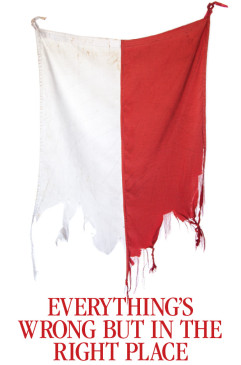
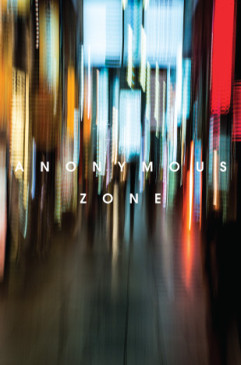

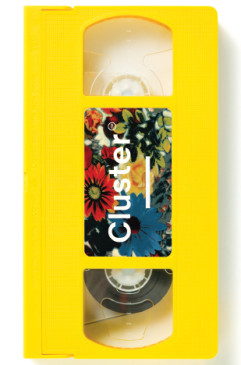




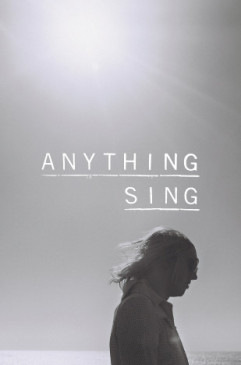










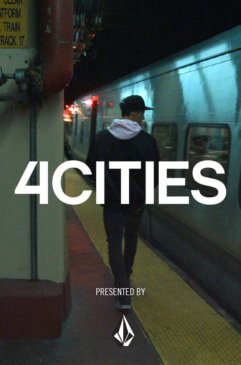







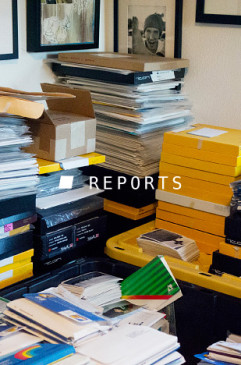

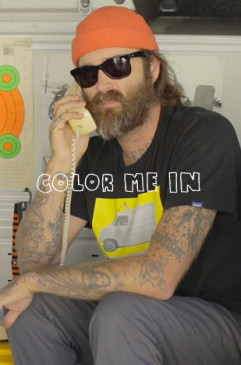

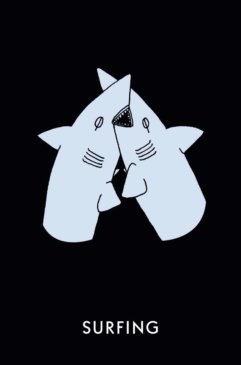

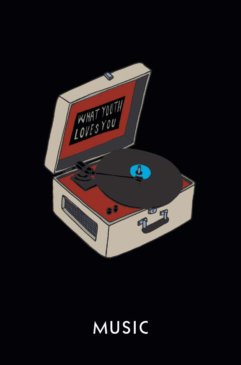

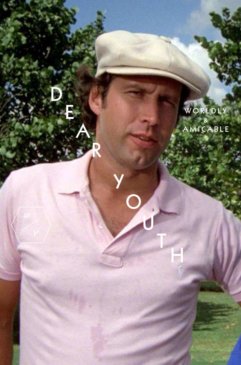








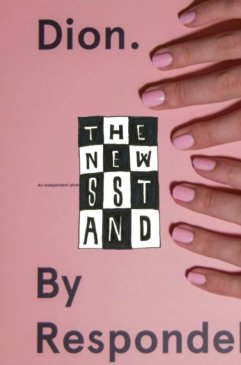
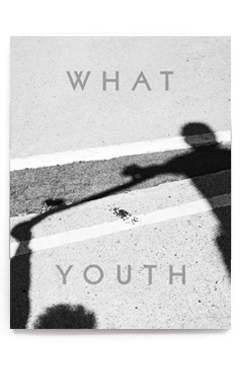

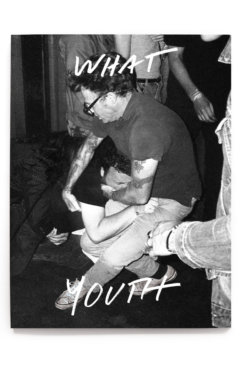

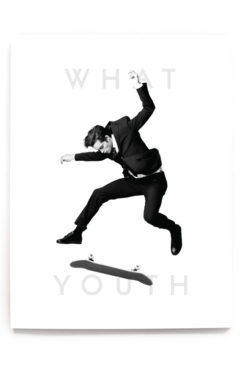

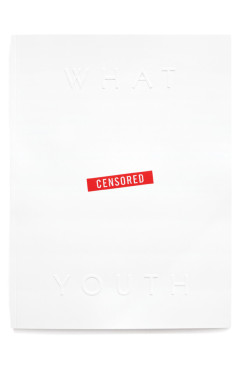

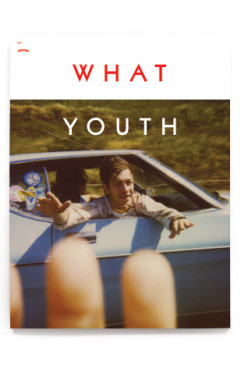
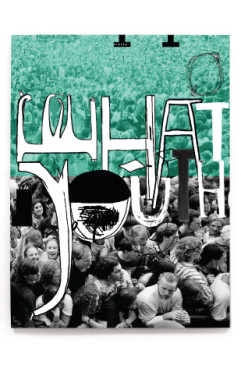
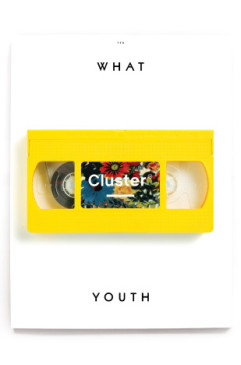
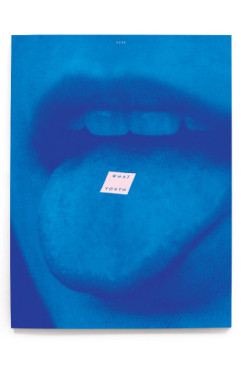
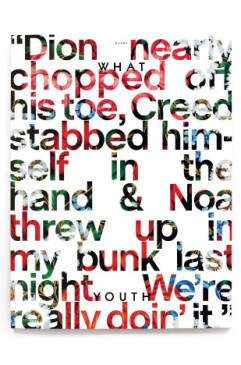
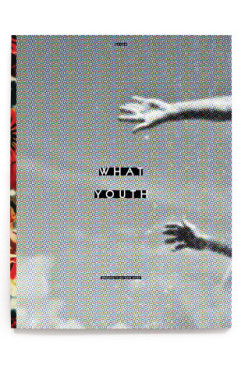
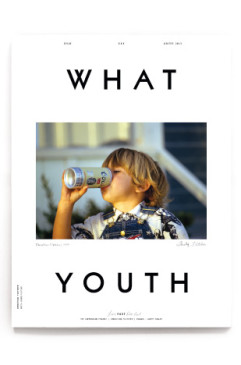
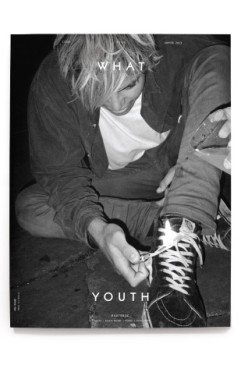

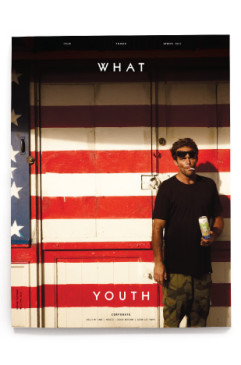


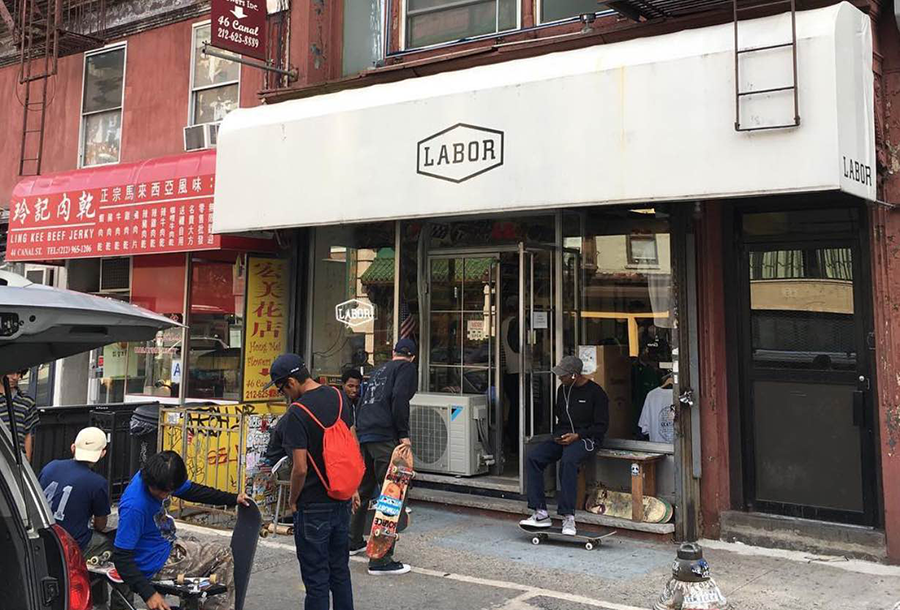
 NXT
NXT 






















